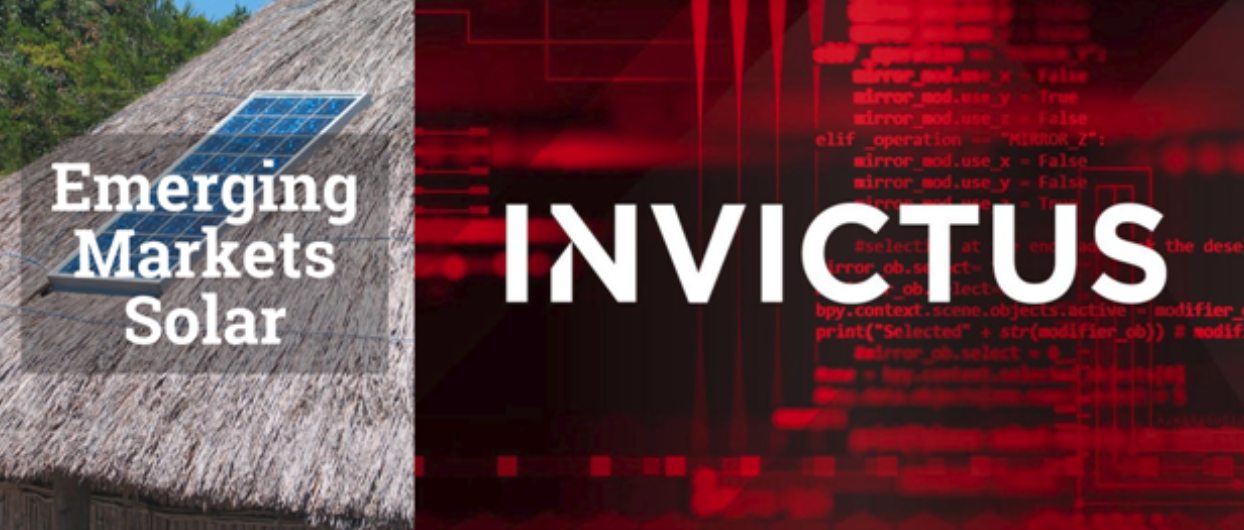
Making an impact is a noble goal for any investor, whether they’re retail or institutional. Impact investing is the practice of investing not only to generate returns, but also social and environmental benefits.
The space has grown tremendously, with impact investing funds amassing over $77 billion in assets under management. From an individual’s standpoint, that number seems enormous, but it’s helpful to put it into perspective.
According to a Stanford Social Innovation Review article, achieving the United Nation’s Sustainable Development Goals (SDGs) by 2030 requires spending $5 to $7 trillion annually. For impact investing to have serious impact then, it needs seriously greater adoption, especially among Main Street investors, who typically haven’t had access to a variety of investment opportunities due to their exclusivity, geographic restrictions, and high investment minimums.
One company that aims to increase adoption is Invictus Capital, a group of alternative investments specialists currently launching the Emerging Markets Solar (EMS) Fund, enabling anyone to become an impact investor by contributing to global clean energy production via financing solar energy infrastructure projects.
This fund, as well as Invictus’ other funds, is “tokenized,” which means that investors will be able to receive returns from the fund by investing in a single token.
Stanford’s Social Innovation group recommends that impact investors anchor their strategy to market returns, which Invictus clearly strives to do through methods such as automatically reinvesting earnings to achieve compounding returns, and a partnership with the Sun Exchange, which has a strong track record to-date.
Via the blockchain-based transparency of the fund, Invictus also adheres to Stanford’s second recommendation: Making it clear that change is attributable to an investment. Finally, EMS adheres to the last recommendation of partnering with established players, as evidenced by Invictus’ partnership with the Sun Exchange.
Ultimately, the field of impact investing is poised to grow, as reported by a Wharton article. By offering impact investment opportunities through the simplicity of a single token, Invictus is making good on the potential of blockchain.
Also read: Top 10 Marketplace For Selling Digital Products
The Future of Impact Investing
In spite of the incredible potential (and the hype) of impact investing, a lot of challenges are ahead for the growth of the space. As written by SSIR, “the case for impact is often dubious,” and this lack of transparency can turn off potential investors from entering. When investments are publicly viewable on a digital ledger, greater transparency might convince those investors to enter the space.
Further, there’s still the notion that impact investing isn’t going to generate high returns. In the same article, Stanford writes: “Forget it—you’re not going to make any money.” Given the complete transparency of tokenized funds, as mentioned, investors won’t be as amenable towards weak returns, and will demand ROI. This is why funds like the Emerging Markets Solar fund are oriented first towards long-term returns.
Sure, the idea of impact is complex, and it’s uncertain which projects will truly make a difference. But one thing is for certain: Transparency will provide a much-needed boost for the industry.
Top 10 News
-
01
Top 10 Deep Learning Multimodal Models & Their Uses
Tuesday August 12, 2025
-
02
10 Google AI Mode Facts That Every SEOs Should Know (And Wha...
Friday July 4, 2025
-
03
Top 10 visionOS 26 Features & Announcement (With Video)
Thursday June 12, 2025
-
04
Top 10 Veo 3 AI Video Generators in 2025 (Compared & Te...
Tuesday June 10, 2025
-
05
Top 10 AI GPUs That Can Increase Work Productivity By 30% (W...
Wednesday May 28, 2025
-
06
[10 BEST] AI Influencer Generator Apps Trending Right Now
Monday March 17, 2025
-
07
The 10 Best Companies Providing Electric Fencing For Busines...
Tuesday March 11, 2025
-
08
Top 10 Social Security Fairness Act Benefits In 2025
Wednesday March 5, 2025
-
09
Top 10 AI Infrastructure Companies In The World
Tuesday February 11, 2025
-
10
What Are Top 10 Blood Thinners To Minimize Heart Disease?
Wednesday January 22, 2025







